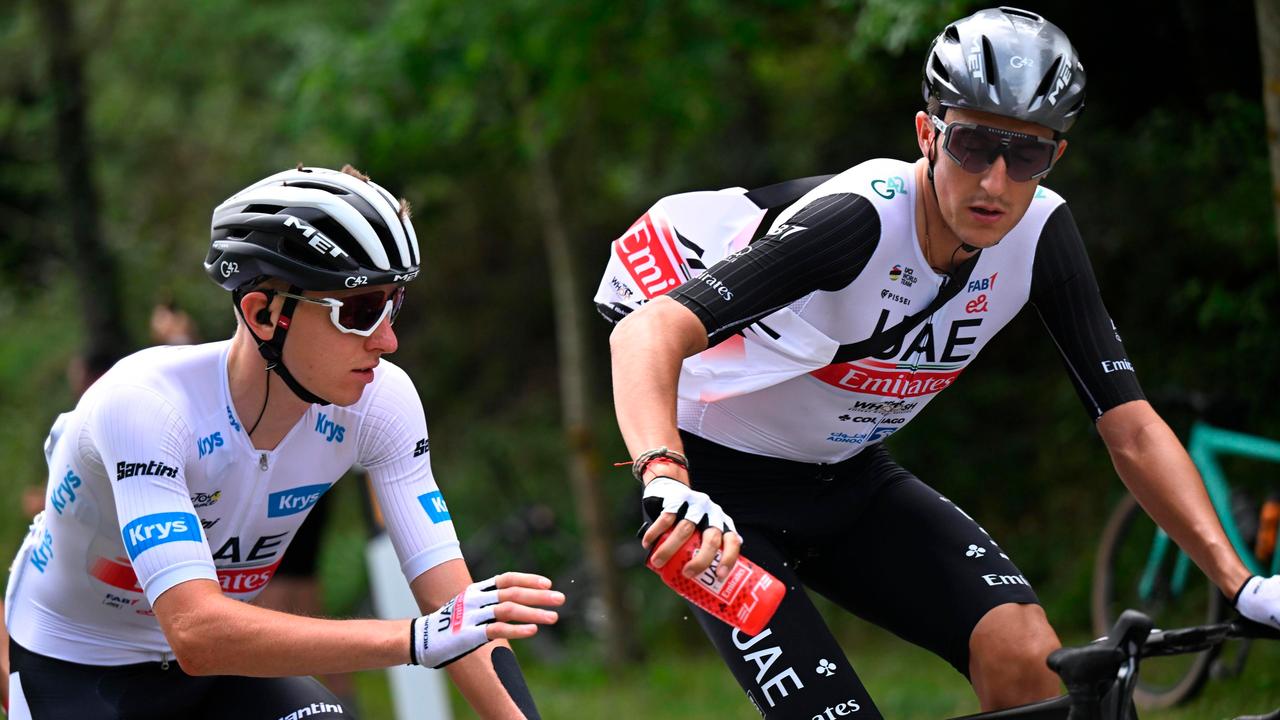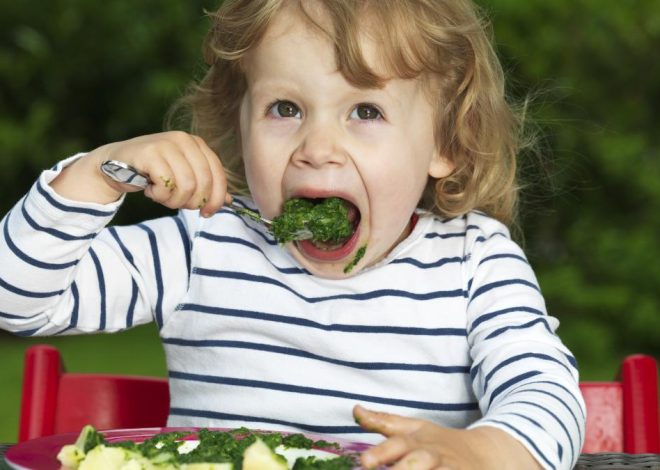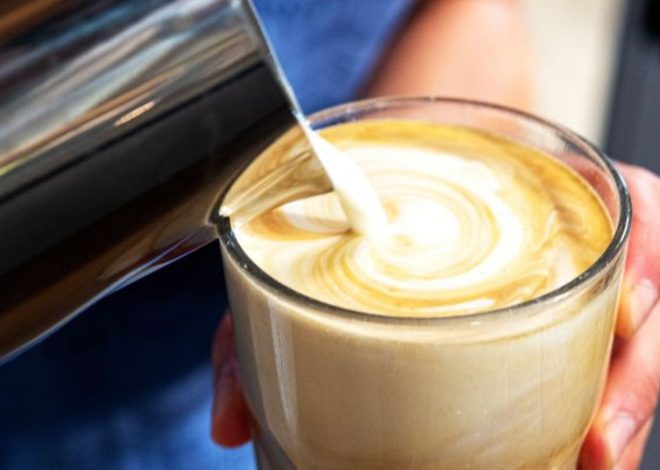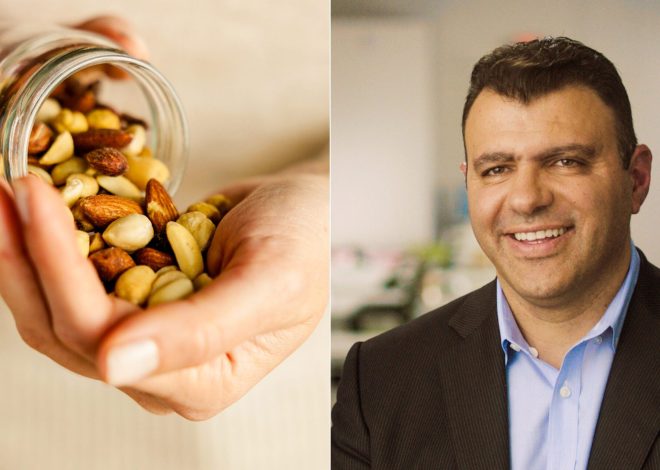
Nutrition according to system: How professional cyclists eat during the Tour de France
Professional cyclists cannot simply eat or drink whatever they want. The “nutritional strategy” for the Tour de France is systematically approached by the teams. It’s a real science.
When Primoz Roglic and co. cross the finish line in the stages of the Tour de France in the coming weeks, their next stop will always be the same: it will lead to the “Kitchen Truck” of the BORA-hansgrohe team. There, the cyclists will be provided with immediate physical supplies, so to speak.
“It is always the same: After the stage, the riders first receive a drink, a shake and meals tailored to their individual needs“, explains Robert Gorgos. The 48-year-old is the team’s “Head of Nutrition”. The qualified nutritionist takes care of the perfect mix and amount of food and drink intake for his team’s drivers. It’s about calories, carbohydrate units, proteins, fluid and energy balance.
Once by feeling, today scientific systematic
The topic of nutrition has developed enormously in professional cycling in recent years. What was once treated purely emotionally is now approached in an extremely scientific manner. The experienced John Degenkolb from the dsm-firmenich team describes it like this: “When I turned professional in 2011, we had a cook on my first Grand Tour, but it was more of a chef’s call. If you wanted a steak, you could have one.”
Today things are completely different: “JNow the entire nutrition plan is written down three weeks before the tour: Before the mountain stages, there is a low-fiber diet, i.e. with little fiber, which then binds less fluid in the body, so that you are a few hundred grams lighter.“
No chance with two kilos more
Gorgos can only underline this: “The level of professional cycling has continued to rise, and small details are the deciding factor. To be competitive, you have to be 100% physically fit and well prepared. Today, it is no longer possible to ride at the front if you are two kilos overweight.”
Gorgos has been with the team for over seven years now, and a lot has changed since then. While nutritional issues were once handled by a single cook, the team now has three on staff. There are also three nutritionists and the aforementioned “kitchen truck”. It is, so to speak, the “heart” of the nutritional issue. “Here we have our own chef, the drivers are among themselves and we can ensure absolute hygiene thanks to the closed nature of the system“, explains Gorgos.
Each driver is looked after individually
Following the “immediate measures” after the stages in the truck, the topic of nutrition management for the drivers and supervisors is far from over. Then it’s time for the fine-tuning – professional teams now talk about “nutritional strategy”. In the BORA-hansgrohe team, each driver is individually looked after by a nutritionist all year round. “Since we are now three, I have ten drivers in the team, for example, whom I look after throughout the season“, explains Gorgos.
The “Kitchen Truck” offers immediate measures
The expert structures the rider’s diet according to the load and consumption, whereby fast, powerful sprinters, for example, have to meet significantly different requirements and have different needs than tour riders or all-rounders. This is primarily about the different consumption of carbohydrates: a heavy sprinter’s body, for example, uses carbohydrates much more wastefully and inefficiently than that of a light climber.
The goal: always the same weight
Things really get serious during the tours, especially during Grand Tours like the Tour de France.”Our goal is to keep the riders at a constant body weight throughout the three weeks“, explains the expert. A maximum of 500 grams of weight fluctuation is the limit, and to achieve this goal the drivers submit themselves to a strict system.
After an individually weighed breakfast, where the riders can choose between two to three variants each day with carbohydrate, protein and fat content tailored to the stage and the requirements, so-called carbohydrate units are available for the duration of the race. These are drink, gel or snack units, each containing 40 grams of carbohydrates, of which the riders consume a predetermined number depending on the intensity of the stage.
The supervisors will serve drinks during the race
Weigh and test urine every day
After the race, the pros log into a computer program where they enter their actual “intake” of these units. The program synchronizes with the bike computer and, depending on the rider’s profile and the actual work performed, the amount and quality of the evening food intake is determined.
A complex system that is accompanied by constant analyses and controls. For example, in the Tour de France, every rider is not only weighed before and after the stage, but their urine density is also determined just as often.
Everyone joins in
An immense effort that requires the cooperation of everyone involved. Gorgos says: “We cannot and do not want to force any rider. However, in top-level cycling, all riders participate meticulously and happily..” In practice, this means that at dinnertime, people don’t just grab the pasta just as the mood takes them.
No, each driver is served his individual meal by the chef, who has received his instructions from the nutritionists. Exceptions or at least slight deviations should confirm the rule here too, as John Degenkolb describes: “I also get a guideline that I have to stick to. But if I eat a little more or a little less, that’s not a problem.”
The team’s nutritionist trusts him and says, according to Degenkolb: “Okay, you know your body, you have taken part in 17 Grand Tours, you can do it. But the teams’ goal is to take a lot of things off the racers’ hands so that they have to think as little as possible.”
One less task for the professionals
This is what Gorgos means when he talks about the psychological benefit that the drivers can take with them: “By trusting us, the riders can gain a great deal of self-confidence. They have the certainty that they have done everything they can in terms of nutrition to achieve maximum success. The question of the right nutrition is a stress factor for professional cyclists, and this is taken away from them here.”

Ethel Purdy – Medical Blogger & Pharmacist
Bridging the world of wellness and science, Ethel Purdy is a professional voice in healthcare with a passion for sharing knowledge. At 36, she stands at the confluence of medical expertise and the written word, holding a pharmacy degree acquired under the rigorous education systems of Germany and Estonia.
Her pursuit of medicine was fueled by a desire to understand the intricacies of human health and to contribute to the community’s understanding of it. Transitioning seamlessly into the realm of blogging, Ethel has found a platform to demystify complex medical concepts for the everyday reader.
Ethel’s commitment to the world of medicine extends beyond her professional life into a personal commitment to health and wellness. Her hobbies reflect this dedication, often involving research on the latest medical advances, participating in wellness communities, and exploring the vast and varied dimensions of health.
Join Ethel as she distills her pharmaceutical knowledge into accessible wisdom, fostering an environment where science meets lifestyle and everyone is invited to learn. Whether you’re looking for insights into the latest health trends or trustworthy medical advice, Ethel’s blog is your gateway to the nexus of healthcare and daily living.




